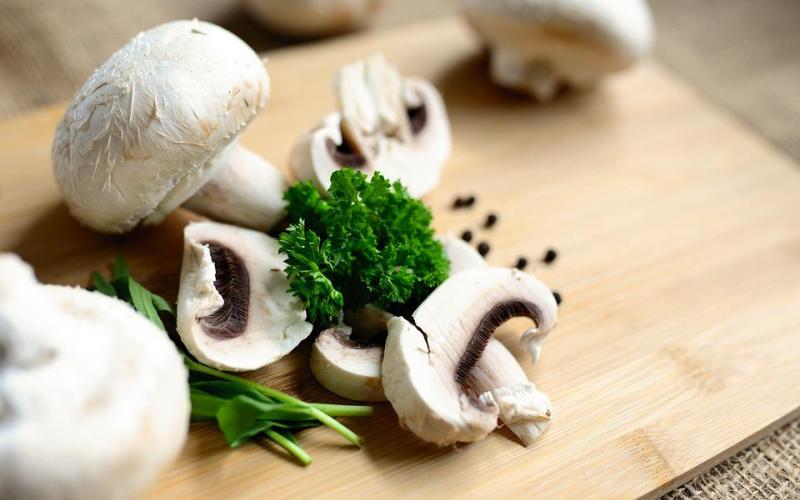What Are Medicinal Mushrooms?

When consumed regularly, mushrooms, a low-calorie, nutrient-rich food, can help with a number of health issues. However, not every mushroom is the same. Numerous mushroom species have been identified over time, and several have become well-known due to their traditional medical applications.
The historical usage of mushrooms has led many to ask “what are medicinal mushrooms?” and "What distinguishes them from edible or "magic" mushrooms?"
If you’ve found yourself asking similar questions, you’ve come to the right place, we’ll answer these and more in this article.
What Are Medicinal Mushrooms?
Through their possible ability to positively affect the immune system, medicinal mushrooms, a kingdom of fungi that you may find all over the world, have been employed in Traditional Chinese medicine to support health. Comparatively to other mushrooms, medicinal mushrooms have a higher density of polysaccharides and, when regularly ingested, can have a range of health benefits. Some medicinal mushrooms can be treated to separate the active metabolites, which can then be used as supplements, or you can eat them in their natural state.
In layman’s terms they can be added to your diet like protein powders, vitamins or minerals to enrich your diet and provide your body with lots of goodness!
Are medicinal mushrooms good for you, and what do they do?
Macroscopic fungi used for food or medicine, often as an extract or powder, are referred to as medical mushrooms. They include good active chemicals that can support and sustain a robust immune system. Additionally, as mentioned above, they contain an abundance of active polysaccharides, the most prevalent of which is beta-glucan, which affects the immune system. We're talking about a rise in antibody production, a decrease in inflammation, and immune cell activation. (1)
In addition, mushrooms produce a large number of chemical substances that serve as natural defences for the body, protecting it against pathogens like bacteria and other intruders that might make us sick. Some of the most essential modern medicines, like the ground-breaking antibiotic penicillin, which revolutionised medicine, were created by fungi!
The fact is medicinal mushrooms are really beneficial to your health.
Mushrooms are essential sources of bioactive chemicals and have antimicrobial, immunological systems and cholesterol-lowering properties. Some mushroom extracts are utilised to support human health and are available as dietary supplements as a result of these qualities. (1)
Are medicinal mushrooms safe?
Simply put, yes. The term "always" should be avoided for obvious reasons, but in actuality, relatively few adverse effects of medicinal mushrooms have been documented. Studies so far have shown that these adverse effects are rare and minor, making medicinal mushrooms like lion's mane, turkey tail, cordyceps, chaga, and reishi safe to eat.
As always, before adding any dietary supplements such as medicinal mushrooms to your diet, we advise speaking with your doctor or a health care professional. (2)
How much medicinal mushrooms should you take?
The answer depends on the kind of medicinal mushrooms you're taking and the results you hope to achieve. Because not all mushrooms are created equal, the dosage or application will vary. A decent place to start with mushroom powder is 1/2 teaspoon or 2ml of liquid extract per day. However, each product made from medicinal mushrooms will have its own instructions, so it's always best practice to read those first. Also if you’re taking medicinal mushrooms on instruction from a healthcare professional, their dosage or suggestion should always be taken into account.
Typically, the majority of medicinal mushroom supplements are either, the medicinal mushroom fruit body which is the actual mushroom that pops out of the ground, or the medicinal mushroom fruit body AND mushroom mycelium. Which is the vegetative part of the fungus, kind of like the roots.
Now you might be wondering why do we need mushroom powders, capsules, or liquids, why can’t we just eat them?
Even if eating mushrooms might be the first thing that springs to mind, not all mushrooms are suitable for eating. Some mushrooms are pretty difficult to chop or consume as is. There are types that are extremely hard, we're talking about being as hard as wood. Not to mention that some of them aren't that tasty.
Therefore, it's crucial to first take into account the physiology of our fungal buddies to determine the ideal approach to consuming medicinal mushrooms. You see, all mushrooms contain chitinous cell walls, which resemble arthropod exoskeletons, essentially they have a layer of protection. Additionally, the protective polysaccharides and nutrients are locked inside thick cell walls, which is what gives medicinal mushrooms their potent interior.
How then do we get to the tasty stuff if we can't eat the mushroom because the outside wall is rock hard? This is where extracts, tinctures, capsules, and powdered mushrooms come into play.
Like with most supplements, you might not experience the advantages right away. Frequently, it takes at least two weeks before medicinal mushrooms start to work (but this can also vary from person to person). Consistency is vital.
Recommendation
From liquid elixirs, powders, and capsules to blends of bone broth, we offer a fantastic selection of medicinal mushrooms. The way you choose to consume medicinal mushrooms ultimately depends on the results you hope to achieve. We advise using dual extraction if you want to find a wide variety of therapeutic substances. We recommend powders for individuals looking for medicinal components with the added advantage of fibre.
You can browse through our selection of medicinal mushrooms here.
References
- Valverde, M., Hernández-Pérez, T., & Paredes-López, O. (2015). Edible Mushrooms: Improving Human Health and Promoting Quality Life. International Journal Of Microbiology, 2015, 1-14. doi: 10.1155/2015/376387
- La Forge, T. (2022). 6 Mushrooms That Act as Turbo-Shots for Your Immune System. Retrieved 8 August 2022, from https://www.healthline.com/health/food-nutrition/best-medicinal-mushrooms-to-try
Always speak with your doctor before taking any action regarding your health. Supplements have a wide range of potential effects and it's important to ensure that they are right for you. This article is not intended to diagnose, treat, or cure any disease.







